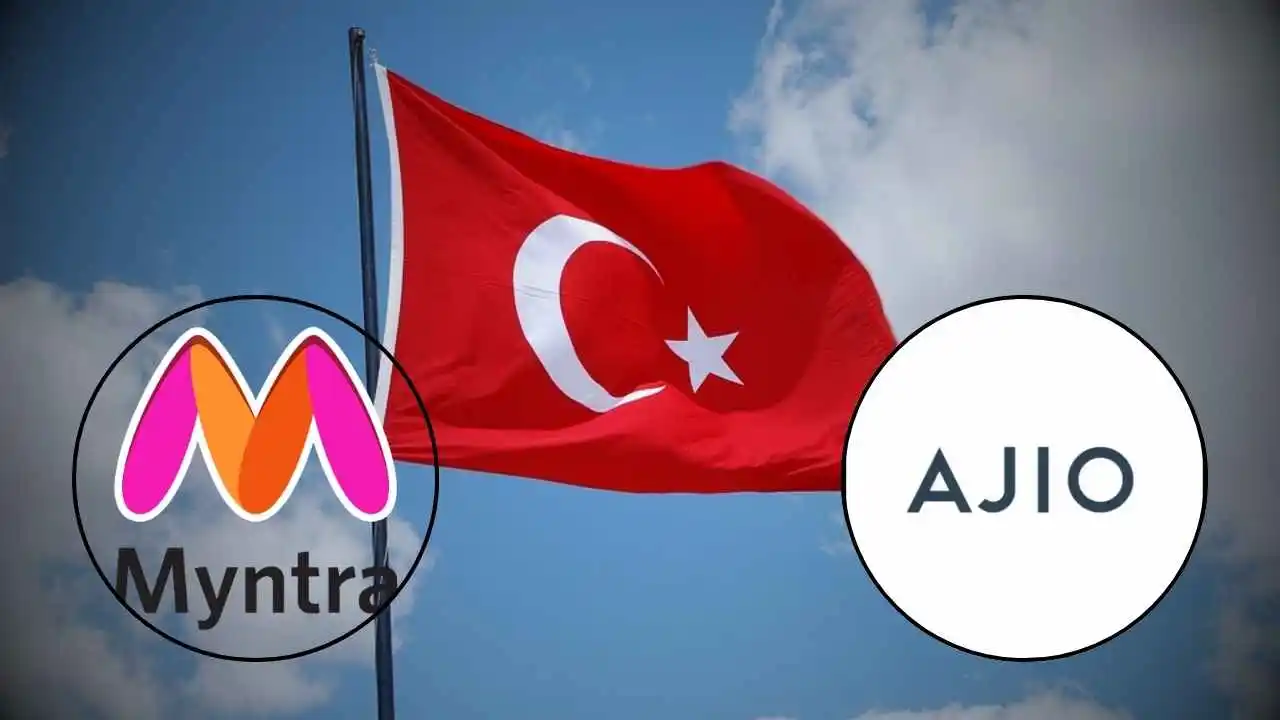As geopolitical tensions escalate following the Pahalgam terror attack and subsequent India-Pakistan military standoff, major Indian e-commerce platforms Reliance-owned AJIO and Flipkart-owned Myntra have taken a decisive step by suspending the sale of Turkish apparel brands on their websites. This move reflects a growing wave of economic nationalism and solidarity with national interests among Indian businesses and consumers.
Turkish Brands Disappear from Indian E-commerce Platforms
Industry insiders reveal that Myntra began reducing the visibility of Turkish brands like Trendyol, an Alibaba-owned international women’s western wear label, even before the ceasefire was announced last week. However, the sale of these products has now been completely halted. Similarly, Reliance’s AJIO has removed popular Turkish brands such as Koton, LC Waikiki, and Mavi from its platform, marking all their products as out of stock. These brands, which had exclusive partnerships with Myntra and AJIO respectively, no longer appear in search results on either platform.
A Reliance spokesperson emphasized the company’s commitment to the nation, stating, “At Reliance, ‘Nation First’ is not just a belief-it is the guiding principle behind every decision. In solidarity with our fellow citizens, we are actively reassessing our offerings across platforms to ensure they reflect the values and sentiments of the country.”
Broader Boycott Movement Gains Momentum
The suspension of Turkish brands by leading online retailers is part of a larger nationwide boycott movement against Turkey and Azerbaijan, both of which publicly supported Pakistan during India’s Operation Sindoor. This military operation was launched in response to the Pahalgam terror attack that claimed 26 lives in Jammu & Kashmir.
Over 125 trade leaders from across India have resolved to boycott all forms of trade and commercial engagement with Turkey and Azerbaijan. The Confederation of All India Traders (CAIT), representing millions of traders, has spearheaded this movement, urging a halt not only in imports and exports but also in tourism, media, and entertainment collaborations with these countries.
Impact on Trade and Travel
India’s trade with Turkey has been modest but significant, with exports worth USD 5.2 billion and imports of USD 2.84 billion between April 2024 and February 2025, resulting in a trade surplus for India. Key Indian exports to Turkey include mineral fuels, auto components, chemicals, and textiles, while imports largely consist of marble, gold, apples, and mineral oil. Trade with Azerbaijan remains minimal but includes crude petroleum imports and exports of agriculture and pharmaceuticals.
Following the boycott calls, travel platforms such as EaseMyTrip, Cox & Kings, and ixigo have suspended bookings to Turkey. Indian travelers are increasingly shifting their focus to alternative destinations like Greece and Armenia. Additionally, institutional collaborations and cultural exchanges with Turkey and Azerbaijan face uncertainty amid the geopolitical strain.
Reliance’s Strategic National Alignment
Reliance is reportedly extending its reassessment beyond AJIO to other platforms like Tira, aiming to discontinue Turkish brands comprehensively. The company has also announced the closure of its office in Turkey, underscoring the seriousness of its commitment to national interests.
This decision aligns with a broader trend of Indian companies and consumers prioritizing ‘Nation First’ in their business dealings, reflecting a strong sentiment against countries perceived to support adversarial actions against India.
Conclusion: A New Era of Economic Nationalism
The removal of Turkish brands from major Indian e-commerce platforms is a clear signal of the shifting business landscape shaped by geopolitical realities. As India strengthens its stance on national security and sovereignty, such economic decisions by leading corporations like Reliance and Flipkart’s Myntra echo the collective resolve of the Indian people and businesses to support the nation’s interests.
This boycott and reassessment of foreign partnerships highlight the increasing intertwining of commerce and national sentiment in India’s evolving economic narrative.
